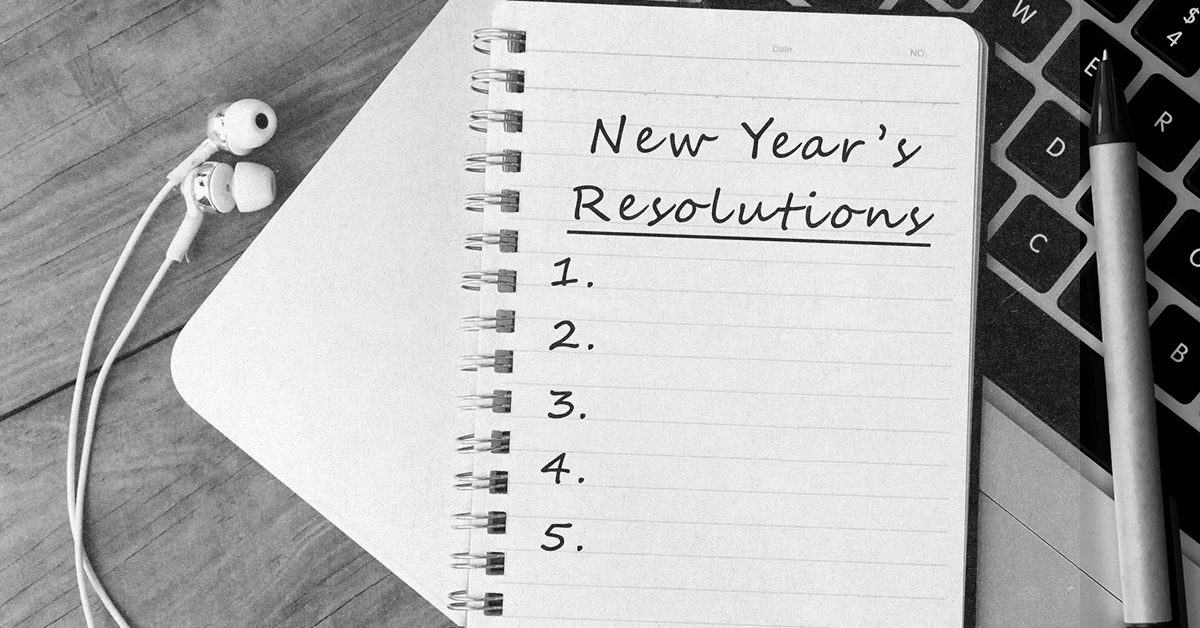As the new year begins, so do the time of new year’s resolutions, where we promise ourselves that this will be the year to eat healthier, work out more or spend more time with our families. But the stats are clear, not even 10% of those who set resolutions feel that they have successfully accomplished them at the end of the year, and only a quarter make it through the first month. That’s why we’ve written this blog post, so that whether you’re looking to get lean, or read your Bible more, you have the right strategies to get you there.
1. Set the right goals: You’ll have your best shot of completing your resolution if you ensure that it is the right goal for you. Avoid goals that are societally put on you, but instead seek God’s wisdom in deterring that you should work on this year.
Your goals should be smart — and SMART. That’s an acronym to help set the right goals.
Specific. Your resolution should be absolutely clear. Instead of just saying that you want to read your Bible more, clearly state how much of your Bible you’d like to read and what time interval.
Measurable. This goes right along with being specific. Create the goal so that you can measure whether or not you are achieving the goal. Make use of journals and notes to note what you have accomplished as the year goes on.
Achievable. Stretch yourself, but don’t choose a goal that won’t be able to actually be achieved realistically. Choosing goals that are too big can lead to frustration and irritation. You can always start smaller and then increase the goal as the year goes on.
Relevant. Is this a goal that really matters to you, and are you making it for the right reasons?
Time-bound. Creating a goal that has a schedule with a clear end date will ensure that the goal doesn’t just occur in perpetuity. This will also assist in measuring the success of the goal.
2. Make a plan: Break your goals down into smaller, more manageable tasks, and create a plan for how you will accomplish each of them. This will help you stay focused and motivated. For example, if you want to lose weight, you will have to focus on both physical activity and nutrition. Creating a plan will have you outlining how you will get the appropriate physical activity (the gym, walks, sports, etc) and the right nutrition (meal planning, dieticians, etc).
3. Use cues and triggers: Identify specific cues or triggers that can help you remember to practice your new habit. For example, you might set an alarm on your phone to remind you to meditate each day, or you might put a note on your fridge to remind you to eat a healthy snack.
4. Be consistent: The more consistently you practice your new habit, the more likely it is to stick. So make an effort to practice your resolution every day, even if it’s just for a few minutes.
5. Celebrate your progress: Don’t forget to celebrate your progress as you work towards your goals. This can help you stay motivated and can make it easier to stick to your new habit.
6. Seek support: Consider enlisting the help of a friend or a professional coach to hold you accountable and offer guidance and encouragement as you work towards your goals. Make sure to remain honest with them about your successes and your failures.
7. Be flexible: Life is unpredictable, and it’s okay if your plans don’t always go as expected. Be open to adjusting your goals or your approach as needed, and remember that progress, not perfection, is what’s important.
8. Seek help from God: He can give you the wisdom you need to accomplish your goals. Psalm 32:8 reminds us “I will instruct you and teach you in the way you should go; I will counsel you with my eye upon you.”
Overall, the key to achieving your New Year’s resolutions is to be patient, persistent, and consistent, and to stay focused on your goals even when faced with challenges or setbacks.

